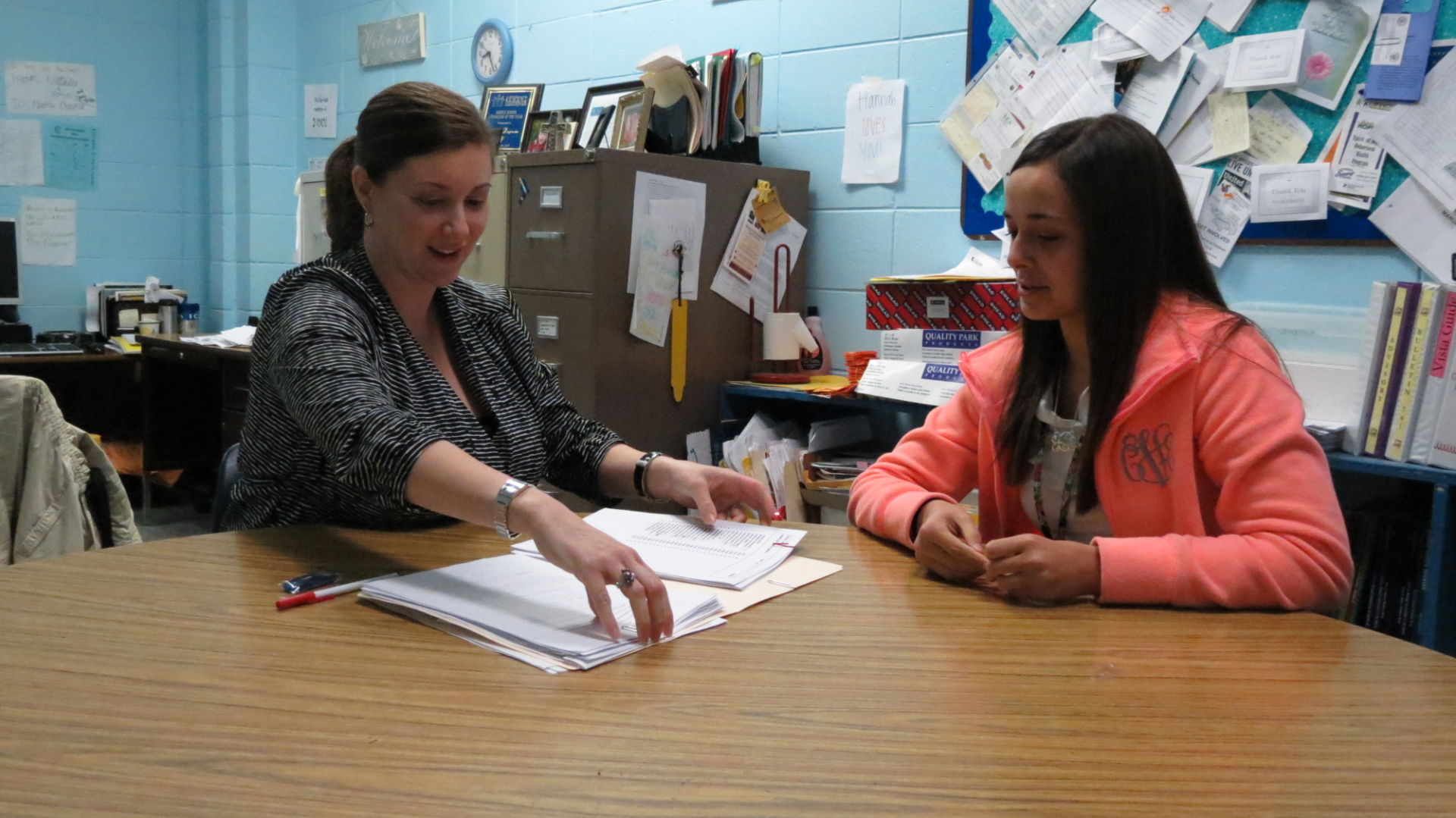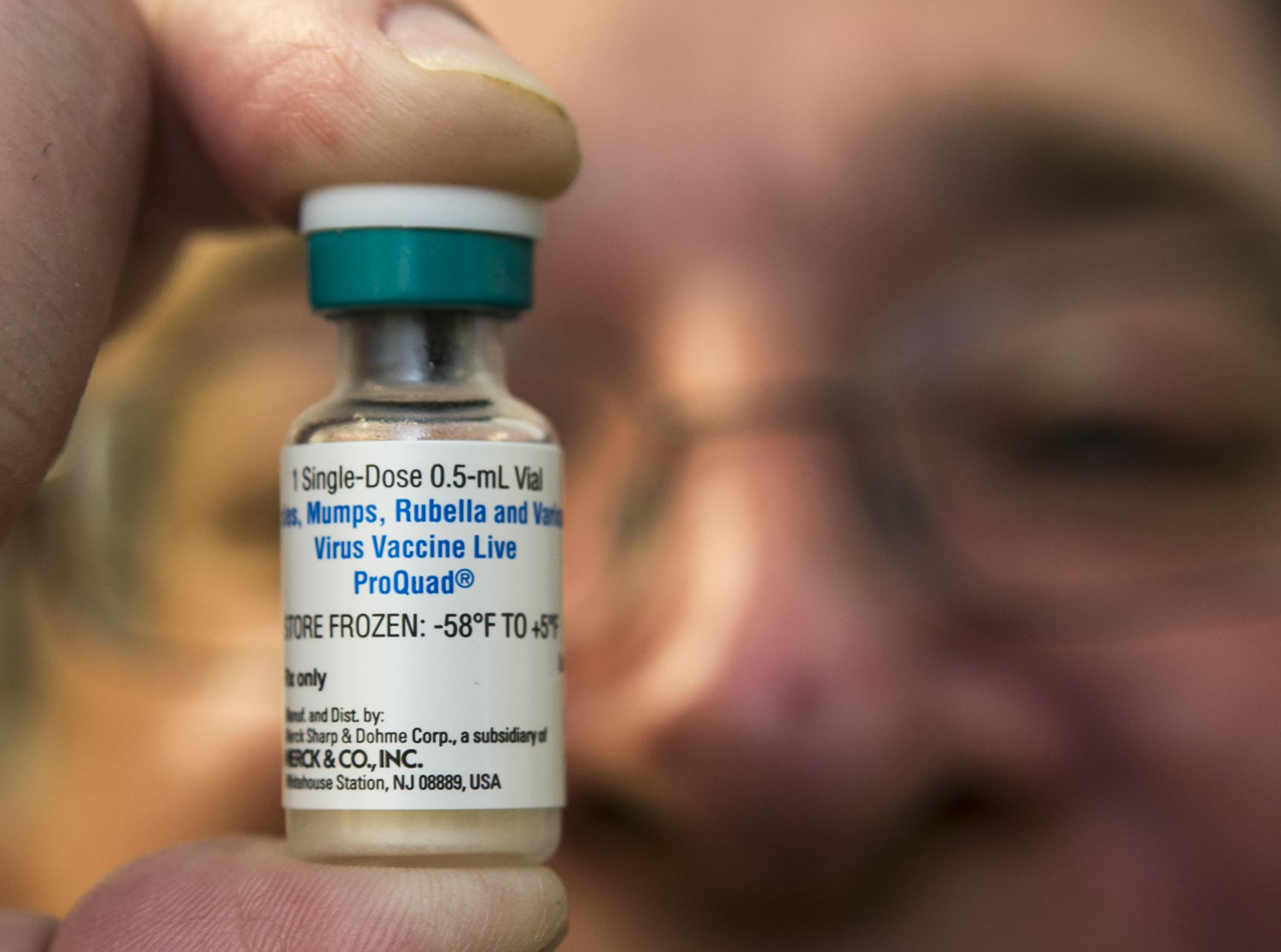
2 TPSD counselors recognized nationally
February 10, 2015Baker Hughes laying off 60; blames sinking gas prices
February 10, 2015As communities throughout the U.S. monitor scattered reports of a measles outbreak, Louisiana officials express confidence that enough safeguards are in place to prevent any full-scale spread.
But in local parishes – and throughout Louisiana – vaccination rates are not 100 percent. And the state itself has one of the higher non-vaccination rates in the nation overall.
“Our vaccination rates are slightly lower for most vaccines for infants and young children,” said John Ford, a spokesman for the Louisiana Department of Health and Hospitals. “It has been this way for a long time. However, once our children go to school, our rates catch back up to the national average.”
Louisiana’s rate for measles vaccination in children ages in the 19 to 35 month group, at 24 months of age, is 88.1 percent, Ford said, compared to the national average of 91.9 percent.
“However, when we look at the MMR coverage rate at kindergarten age level, we see that 96.76 percent of the kindergarten students in Louisiana received their required two doses.”
In recent years concerns that the vaccine could lead to autism – a report widely discredited by doctors but still making its rounds on the Internet and other media – has caused parents to rethink immunization for their children. The controversy began with a 1998 report in the medical journal “Lancet,” but health officials who have debunked it say no reputable study since shows any such link.
Refusal to vaccinate, public health officials say, is a grave mistake that can place those children and others at risk.
The number of children not immunized can also be higher than statistics show due to those who may be home-schooled.
In local schools, officials reported that a “handful” of students have not been vaccinated for measles.
Terrebonne Parish school officials said the unvaccinated children’s parents had requested waivers from the requirement due to religious reasons.
“There is a total of 39 students in the district that have signed consent forms not wishing to immunize before,” said Kim Vauclain, child welfare and attendance supervisor for the Terrebonne Parish School District.
Last year, the total was 45 and in 2012 48 students.
“It looks like it’s going down,” Vauclain said of the non-inoculated.
Floyd Benoit, spokesman for the Lafourche Parish School District, said the number of non-immunized children stands at “about a dozen.”
Measles has taken center stage in the national health consciousness because of an outbreak among people who visited Disneyland.
Dr. Ron Chapman, director of the California Department of Public Health, announced on Jan. 27 that 59 cases of measles were reported among California residents since December.
Of the confirmed cases, 42 were linked to initial exposure in December at Disneyland or Disney California Adventure Park in Anaheim.
“The confirmed cases include five Disney employees,” a statement from Chapman’s office says. “In addition, other cases have visited Disney parks while infectious in January.”
The last case of measles in Louisiana was reported in 2008.
Worldwide – outside the U.S. – an estimated 20 million cases of measles and 197,000 measles deaths occur each year worldwide.
The vaccine for measles was introduced in 1965 and within two years vaccinations occurred on a massive scale.
DHH says 1971 was the last year for an upsurge in the U.S.
“By 1981, Louisiana saw fewer than 20 reported cases each year. In 1989, there was a national measles epidemic and the number of cases in Louisiana rose to 122,” DHH says.
After that, the number of cases hovered around 10 per year in Louisiana.
State law allows parents who don’t want children vaccinated for certain reasons – such as religious beliefs – to opt out, as is the case with the children in Terrebonne and Lafourche. But the courts have thus far not required that states allow such loopholes, and not all states have them.
The U.S. Supreme Court weighed the issue 100 years ago and it has been cited by court in more recent times when the issue surfaced.
“I urge all parents to get their kids vaccinated,” Jindal said. “Vaccinations are required for children to attend public school and pre-K. Just about every private school requires vaccinations.”
Citing his own experience in the health care field and as a parent, Jindal noted that the state not only encourages vaccinations but also helps low-income families obtain them.
“I have no reservations about whether or not it is a good idea and desirable for all children to be vaccinated,” the governor said. “There is a lot of fear mongering out there on this. I think it is irresponsible for leaders to undermine the public’s confidence in vaccinations that have been tested and proven to protect public health. Science supports them and they keep our children safe from potentially deadly but preventable diseases. Personally, I would not send my kids to a school that did not require vaccinations. Vaccinations are important. I urge every parent to get them. Every one.”
In this Jan. 29 AP photo, a pediatrician holds a dose of the measles-mumps-rubella (MMR) vaccine at his practice in Northridge, Calif.











